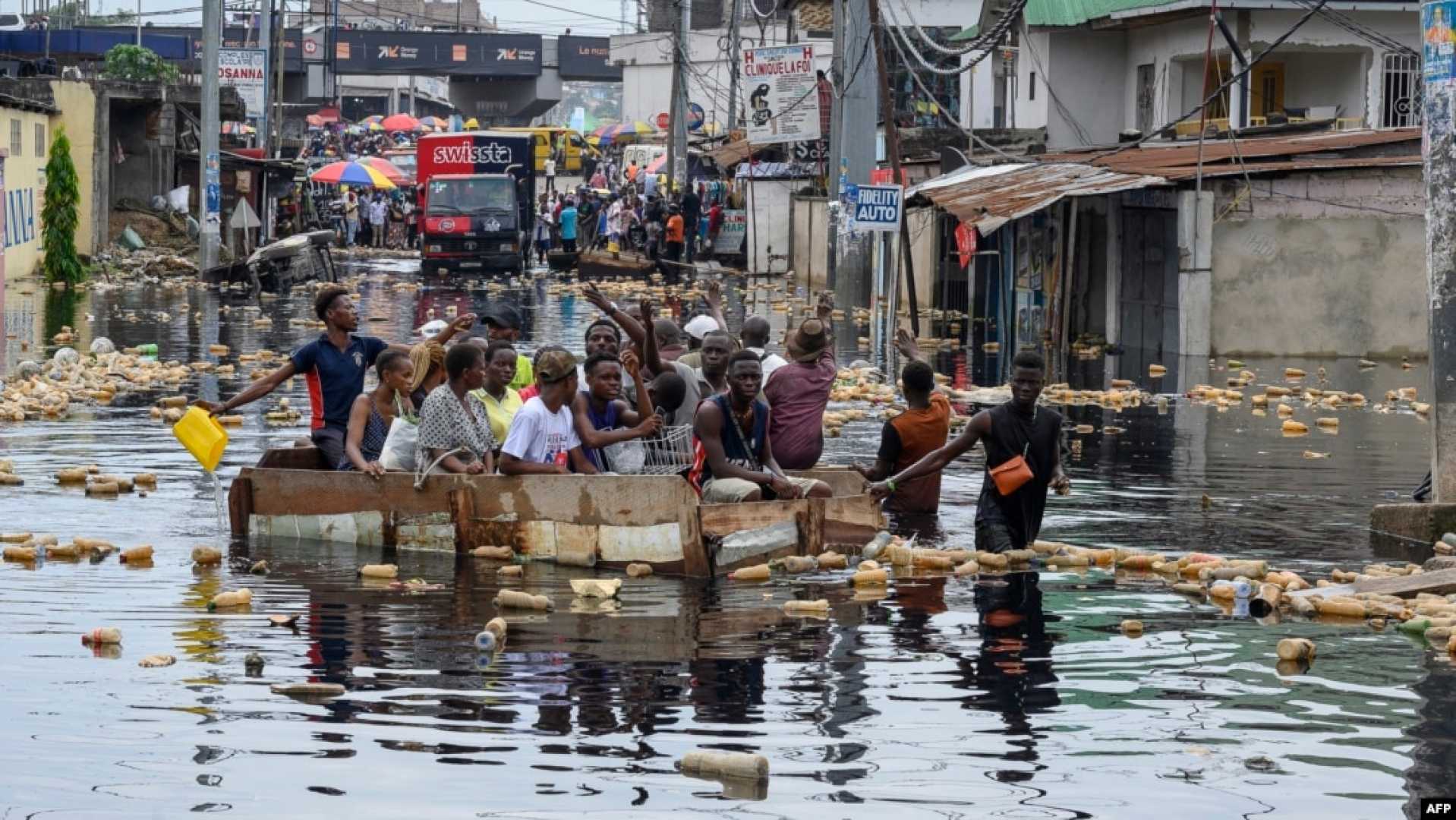World
DRC Faces Dual Crises: Conflict Displaces 200,000, Floods Threaten Food Security

GOMA, Democratic Republic of Congo — Escalating violence and severe flooding have plunged the Democratic Republic of Congo (DRC) into a deepening humanitarian crisis, displacing nearly 200,000 people and threatening food security for millions, according to the World Food Programme (WFP).
Fighting between the M23 rebel group, other armed factions, and inter-community violence in North Kivu and Mai Ndombe has intensified since November, violating the Luanda-process ceasefire. Meanwhile, the onset of the rainy season, exacerbated by La Niña conditions, has triggered localized flooding, with more widespread flooding anticipated in the coming months.
In October, WFP distributed 16,000 metric tons of food and $10 million in cash-based transfers to 1.7 million people, including internally displaced persons (IDPs), refugees, and host communities. However, the organization warned that rapidly evolving needs are outpacing available resources, leaving many without assistance. “We are reaching more people, but the needs are growing faster than we can respond,” a WFP spokesperson said.
Nutrition programs have also been strained. WFP provided malnutrition treatment and prevention commodities to 326,000 children and pregnant or breastfeeding women and girls. Additionally, the agency is supporting 20,000 children aged 6-23 months and women as part of its response to the Mpox outbreak.
School feeding programs in six provinces—Kasai Oriental, Kasai Central, Lomami, North Kivu, South Kivu, and Tanganyika—are helping 185,000 children stay in school. Meanwhile, WFP-supported livelihood initiatives have benefited 156,000 smallholder farmers through activities like land management, afforestation, and agricultural training.
Despite these efforts, WFP faces a funding shortfall of $367.5 million to sustain operations from December 2024 to May 2025. The agency emphasized the urgent need for international support to address the dual crises of conflict and climate-related disasters.
In a separate development, the DRC is seeking to diversify its mining partnerships to reduce reliance on Chinese investors. Marcellin Paluku, a senior official in the Ministry of Mines, told Reuters that the country is courting investors from Saudi Arabia, the European Union, and India. “Today, 80% of our mines are with one partner (China). So it’s a risk,” Paluku said. “We are trying to diversify our partnerships to avoid overreliance.”
The DRC, the world’s largest cobalt supplier and a major source of copper, has seen Chinese companies dominate its mining sector in recent years. CMOC Group, a Chinese firm, became the world’s largest cobalt producer after acquiring the Tenke Fungurume Mine from U.S.-based Freeport-McMoRan in 2016.
As the DRC grapples with both humanitarian and economic challenges, the international community faces mounting pressure to provide aid and support sustainable development in the resource-rich but crisis-stricken nation.












